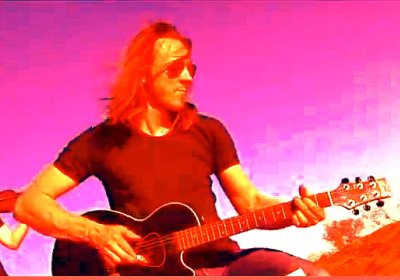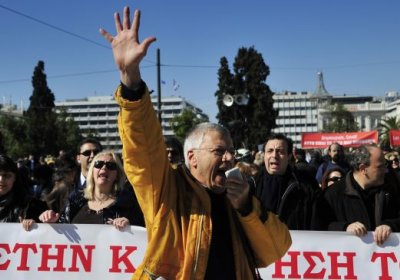Democracy Now! broadcasts from Chicago, site of the largest NATO summit in the organization's six-decade history. On Sunday, veterans of the Iraq and Afghanistan wars, as well as members of Afghans For Peace, led a peace march of thousands of people.
923
The Darwin Asylum Seeker Support and Advocacy Network released the statement below on May 23.
* * *
The private corporation that runs immigration detention centres, Serco, has recently insisted that Serco security guards watch over visitors and asylum seekers when members of the Darwin community visit the Darwin Airport Lodge.
The Refugee Action Coalition Sydney released the statement below on May 23.
* * *
Following a report on ASIO negative Tamil refugees, aired on the ABC’s current affairs program, 7:30, on May 21, Serco guards raided and searched the accommodation rooms of ASIO-negative Tamils late Tuesday afternoon.
Anti-nuclear activist band The Super Raelene Brothers first made it into the pages of Green Left Weekly in 1995. But the duo, who have just dropped their latest atomic-bomb-atomising EP, Nuclear Kop, were making music way before then.
The rulers of the world are panicking over the results of Greek democracy.
The Party, The Socialist Workers Party 1960-1988, Volume II: Interregnum, Decline and Collapse, 1973-1988, A Political Memoir
By Barry Sheppard
Resistance Books (London), 2011
345 pages.
In the 1960s and 1970s, the United States Socialist Workers Party (SWP) was one of the most promising socialist organisations in any imperialist country.
Formed in the 1930s, it survived the isolating conservatism of the '50s to play a key role in building many progressive movements, particularly the fight against the Vietnam War.
There is no end in sight to violence and repression in Honduras. There is also no end in sight to the United States and Canadian governments and business maintaining political, economic and military relations with the country's military-backed regime.
Even after US Drug Enforcement Administration officers killed at least four Honduran civilians ― including two pregnant women ― in the name of the "drug war", two more journalists, Alfredo Villatoro and Erick Martinez Avila, have been killed in the Central American nation.
The Party, The Socialist Workers Party 1960-1988, volume I: The Sixties, A Political Memoir
By Barry Sheppard,
Chippendale, Australia: Resistance Books, 2005, 354 pages including index, with a rich collection of photographs.
The Party, The Socialist Workers Party 1960-1988, volume II: Interregnum, Decline and Collapse, 1973-1988, A Political Memoir
By Barry Sheppard
London: Resistance Books, 2012
345 pages including index.
The controversial Ramu nickel mine near Madang in Papua New Guinea has come under fire for new claims of environmental damage.
The mine has been the subject of a long-running battle with locals over plans to pump 100 million tonnes of mine waste into Basamuk Bay over 20 years. The dumping threatens the pristine ecosystem of the area as well as the livelihoods of local people.
The strike of post-secondary students in Quebec has taken a dramatic turn with the May 18 approval by the provincial government of a special law to cancel the school year at strike-bound institutions and outlaw protest activity deemed disruptive of institutions not participating in the strike.
Details of Bill 78 were unveiled the day before and debated in a special, overnight session of Quebec’s National Assembly.
The announcement by giant US bank JPMorgan Chase that it had lost US$2 billion in a shady deal shows the kinds of financial speculation that led to the 2007-2009 financial collapse continue to steam ahead.
It also underscores that both Republican presidential candidate Mitt Romney and Democrat president Barack Obama are in Wall Street’s pocket.
As the financial system was collapsing in the waning months of the George W Bush administration, it responded with huge bailouts of banks and other financial institutions.
Some years ago, travelling on the presidential plane of Venezulea's left-wing President Hugo Chavez of with a French friend from Le Monde Diplomatique, we were asked what we thought was happening in Europe. Was there any chance of a move to the left?
We replied in the depressed and pessimistic tones typical of the early years of the 21st century. Neither in Britain nor France, nor anywhere in the eurozone, did we see much chance of a political breakthrough.
Then maybe, said Chavez with a twinkle, they could come to our assistance.
- Page 1
- Next page







